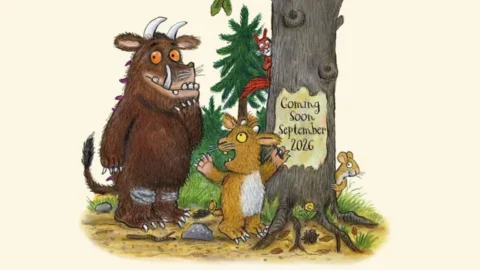After more than a year of captivating audiences, Wura, Showmax’s debut Nigerian original telenovela, brought its story to a dramatic close on Tuesday, April 15.
Launched in January 2023, the show carved a unique space for itself within the African television landscape, offering viewers a gripping story filled with emotional tension, high-stakes drama, and nuanced characters.
Over time, it became a hallmark for what a locally produced series could achieve on a global streaming platform, thanks to its sharp storytelling and rich character development.
At the heart of Wura was the complex figure of Wura-Amoo Adeleke, portrayed by Scarlet Gomez. Her dual existence—as a devoted wife and mother at home and a cutthroat CEO in the corporate world—formed the show’s central tension.
This dichotomy not only fueled the narrative arc of the series but also gave audiences a rich emotional thread to follow.
Through her character, the series explored the fragile balance between ambition and personal integrity, showing how the pressure to succeed can distort even the most well-meaning intentions.
Spanning three seasons and 260 episodes, Wura offered a long-form narrative rarely seen in Nigerian TV drama. With each new episode, viewers were drawn deeper into a world where power, betrayal, and consequence collided.
As secrets unraveled and characters faced the ripple effects of their past decisions, the show masterfully layered suspense and emotional reckoning.
The finale served as both a climax and a reckoning, where all the threads pulled tight and finally snapped, revealing long-hidden truths and the cost of ambition.
The final episode was anything but a tidy wrap-up. Instead, it delivered a raw, emotional reckoning that refused to sugarcoat reality. Long-standing conflicts came to a head, leaving some relationships shattered and others forged in new ways.
The show remained consistent in its refusal to offer fairy tale endings; instead, it portrayed life as it often is—messy, unpredictable, and full of hard choices.
This decision made the finale not just memorable but emotionally honest, staying true to the show’s original tone.
Central to the series’ conclusion was Wura’s reckoning with the very people who had stood by her or turned against her. Her choices throughout the series had led her to a precipice, and in the end, she was forced to confront the cost of every lie, every betrayal, and every act of manipulation.
The show remained rooted in its exploration of unchecked ambition and the grey areas of morality, offering a sobering commentary on the price of power and the illusion of control.
Dr. Busola Tejumola, Executive Head of Content and West Africa Channels at MultiChoice, acknowledged the show’s significant cultural impact. In her words, “Wura has set a new benchmark for African originals on streaming platforms.”

Her statement not only celebrated the fan base that had grown with the show but also underscored the importance of creating narratives that resonate deeply with local audiences while maintaining global appeal.
The show’s success was a clear sign that there is a growing appetite for well-crafted African stories told on our terms.
An adaptation of South Africa’s The River, Wura was reimagined to fit Nigerian realities, set in the gold-rich community of Iperindo in Osun State. While it retained the melodramatic flair typical of telenovelas, it was grounded by its cultural authenticity and the emotional resonance of its characters.
Performances from a strong ensemble cast—including Yomi Fash-Lanso, Carol King, Ego Iheanacho, and Martha Ehinome—added depth and believability to the drama, elevating it from mere entertainment to something that felt real and familiar.
Even after its final credits rolled, Wura continues to leave an impression. Its multiple nominations at the 2024 Africa Magic Viewers’ Choice Awards signal that its influence goes beyond viewership numbers.
It challenged what Nigerian television could look like and demonstrated that long-form drama, when done right, can both entertain and provoke thought.
As audiences say goodbye, Wura leaves behind a legacy of bold storytelling and a blueprint for future local productions aiming to do the same.









